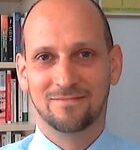A Semblance of Compromise Obscures Old and New Rifts
Wolfram Lacher
 The formation of the Government of National Unity (GNU) under Abdelhamid Dabeiba in March 2021 was a breakthrough in efforts to overcome Libya’s political division. But the settlement’s flaws are already starting to show.
The formation of the Government of National Unity (GNU) under Abdelhamid Dabeiba in March 2021 was a breakthrough in efforts to overcome Libya’s political division. But the settlement’s flaws are already starting to show.
PART TWO
Persistent Military Realities
To enable negotiations on the redistribution of access to state funds, political actors circumvented core issues and key players in the conflict. These include the continued existence of opposing military forces and the grievances – particularly impunity for war crimes – of groups from which the conflicting parties recruit.
The armed groups on both sides of the most recent war were only marginally involved in the political process. Haftar submitted to the process because his foreign backing dwindled in the wake of his defeat in Tripoli, and because he was exposed to Egyptian pressure.
Likewise, his opponents in western Libya were also more or less excluded from the formation of the government, because they lacked the necessary weight after fragmenting into rival factions subsequent to the war. But neither side has a strong stake in the GNU, nor do they effectively submit to its authority.
So far, the GNU has refrained from claiming leadership in the security sector. According to the LPDF, the Presidency Council has the power to appoint the top echelons of the military and thereby to reunify command structures.
But it has yet to do so. In fact, it remains unclear whether Haftar even recognizes the Presidency Council’s role as the supreme commander of the armed forces. For his part, Dabeiba has not named a defence minister because no candidate gained the acceptance of both Haftar and his adversaries.
Dabeiba’s interior minister, like most of his predecessors, stands for a policy of allowing rival armed groups to operate under the interior ministry umbrella and benefit from its funds.
Dabeiba himself has extensive contacts among armed groups in Tripoli, Misrata and Zawiya, which have so far enjoyed greater leeway during his tenure than under the previous interior minister, Fathi Bashagha.
As for the task of placing the competing military command structures under a unified leadership, the GNU has merely deferred to the Joint Military Commission.
Consisting of two sets of five officers appointed respectively by Haftar and the GNU’s predecessor government in Tripoli, the Joint Military Commission has confined itself to working out the details of the ceasefire and its monitoring mechanism.
It lacks the political weight to negotiate a reunification of the army.
The five officers appointed by Tripoli enjoy little trust among the armed groups that form the bulk of western Libyan forces. The role of the five officers appointed by Haftar is primarily to simulate the existence of a formal military hierarchy, whereby actual decision-making authority lies with the warlord’s inner circle of close relatives.
Haftar’s effective submission to a unified military command is as equally unlikely as the possibility that his adversaries accept a leading role for him or his sons. The core LAAF units are inextricably intertwined with both his claim to overall power and the economic predation of his relatives.
As long as Haftar’s power structure stands, he will only permit a notional integration into a national military, in order to gain access to funds. He urgently needs such access given his increasing financial difficulties, his tarnished standing following the Tripoli defeat and his limited influence on the government formation.
But with the persistence of Haftar’s forces, the threat he poses to his enemies in western Libya also endures and thereby necessitates their dependence on local militias and Turkish protection as security guarantees.
In sum, the GNU is unlikely to make progress towards unifying command structures, tightening control over armed groups or dissolving militias. Armed actors are insufficiently integrated into the political process.
The government itself avoids tackling the challenges in the security sector since doing so would collide with its approach of appeasing factions across political divides by offering them access to state funds.
Finally, Haftar’s power structure remains the single biggest obstacle to the establishment of national security institutions. Even if the GNU continues to ignore the thorny issues in the security sector, it will soon see itself confronted with the realities of the military landscape.
In Tripoli, armed groups exert great influence within state institutions – a state of affairs that has fuelled anger among forces in other cities and regions, and provoked open conflict in the capital in 2018.
As in previous governments, the Tripoli militias are pushing to place allies in senior positions, which is already driving growing tensions in the capital. In the east and centre of the country, the GNU will only be able to operate with Haftar’s approval.
Government representatives will have to strike arrangements with Haftar’s forces; for the latter, this means opportunities to siphon off funds and fill positions with allies.
Above all, recurrent acts of violence by armed groups will soon show just how limited the new government’s sway is over militias that nominally act as state security forces.
Economic Opportunities?
Instead of tackling the problems in the security sector, Dabeiba emphasizes that he intends to jump-start the economy and restore basic public services like the supply of power, cash and fuel. In doing so, he responds to pressing concerns among the population.
The economy and financial sector have severely suffered during years of institutional division. Underinvestment, corruption and war damage have taken a toll on public infrastructure.
Inflation and the decline of public services have impoverished large swathes of the middle class. But Dabeiba’s focus on the economy is also a political calculation. It fits well into the political class’s current tendency of ignoring fractious substantive issues in favour of focusing on splitting the spoils.
Dabeiba also hopes to gain political capital from an economic upturn, whether apparent or real – political capital that could allow him to hold on to power longer than anticipated. This likely explains his early moves to increase public salaries by 20 percent and pay a basic pension as well as child and spouse allowances.
Dabeiba’s intention to resume major public investment projects for the first time since the 2014 political divide also likely hides ulterior motives. By awarding contracts, Dabeiba could seek to gain the goodwill of foreign governments with the aim of securing his power.
There are also justified fears that cronies associated with Dabeiba would use investment projects to siphon off profits through commissions or other methods.
After all, Dabeiba represents a network that is notorious for doing just that. During the final years of the Qadhafi era, Dabeiba headed the state-owned Libyan Investment and Development Holding Company (LIDCO).
This company partnered with foreign contractors to implement construction projects worth billions of dollars that were awarded by the Organisation for the Development of Administrative Centers (ODAC).
Until 2011, the head of this state institution was Ali Dabeiba, a cousin and brother-in-law of the current prime minister as well as a current member of the LPDF.
While at the helm of ODAC, Ali Dabeiba amassed immense wealth that can only be explained by massive corruption, leading to suspicions that have caused Libyan and British authorities to open fraud investigations.
Abdelhamid Dabeiba’s ostentatious prosperity is also difficult to reconcile with his job as an executive at a state-owned company.
Moreover, in recent years, the prime minister paid millions to lobbying firms in the US and France to raise his political profile, partly using LIDCO funds for this purpose.
It seems likely that Dabeiba’s political ambitions are also a quest to amass even greater wealth. With Dabeiba, an entire network of interests has come to power. Well-informed observers in Dabeiba’s native Misrata concur that his cousin Ali is the eminence grise behind the prime minister.
Since 2011, Ali Dabeiba has built a patronage network among armed groups in Misrata and Tripoli to protect his interests. His son Ibrahim is the prime minister’s closest adviser, even accompanying him to meetings with foreign heads of state.
Other advisers are also longstanding confidants, some of whom he worked with at LIDCO and to whom he is related by marriage. In addition, the ministers for transport and construction, as well as the state minister for prime minister affairs also have close ties to the Dabeiba network.
Using his official powers, Dabeiba will seek to place allies in top positions at state-owned enterprises. The Dabeiba network’s interests are therefore ambivalent.
On the one hand, visible economic and social amelioration would serve to secure Dabeiba’s hold on power. On the other hand, cronyism and corruption obstruct such progress – even more so as the proponents of rival networks in the government will also strive for selfenrichment.
Competing interest groups within the GNU are only one obstacle to reforms. Corruption is rampant across all levels of the public sector. Curbing it would require restoring the authority of the courts and at least an embryonic state monopoly on violence.
In addition, key institutions such as the Audit Bureau and the Central Bank remain divided, and the prime minister has no remit over them. Rival networks could use such institutions as levers to veto contracts and other budget allocations.
Dabeiba has found a powerful ally in Central Bank Governor al-Siddiq al-Kabir, who is keen to maintain good relations with the government to secure his position, and also has longstanding ties to the Dabeiba network.
Over the past year, Kabir came under strong pressure from Dabeiba’s predecessor Faiez al-Serraj as well as the chairman of the National Oil Corporation Mustafa Sanalla, both of whom sought to oust him. But with the advent of the GNU, that pressure has faded, which hasn’t helped to advance reforms.
Kabir is now less cooperative on efforts to reunify the Central Bank, as doing so would dilute his power over the institution. A key unresolved issue concerns the 70 billion dinars (13 billion euros) in public debt accumulated by the parallel eastern authorities since 2015.
Only reunification of the Central Bank would permit a concerted effort to restore trust in the dinar, improve the availability of cash and tackle the discrepancy between the official and parallel exchange rate.
***
Dr. Wolfram Lacher is a Senior Associate in the Africa and Middle East Research Division at SWP.
_____________





